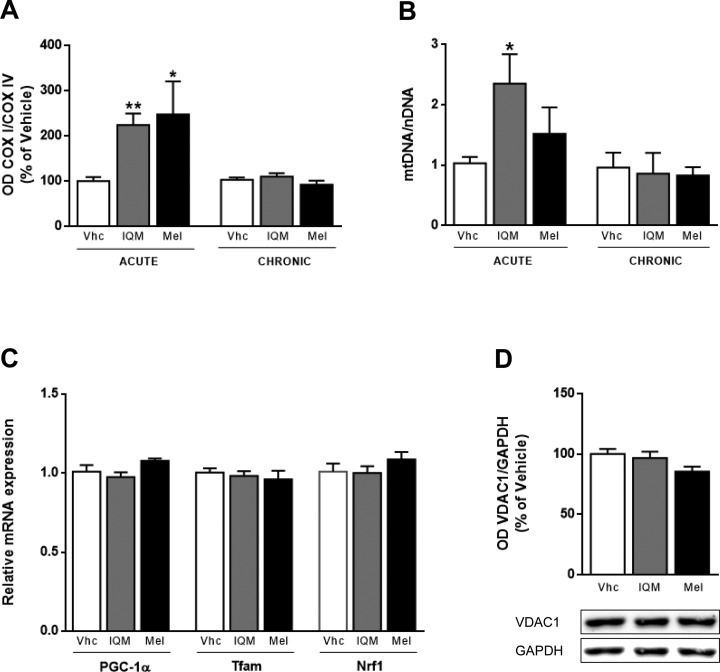Fig. 4.
Effect of acute 2-(2-(5-methoxy-1H-indol-3-yl)ethyl)-5-methyl-1,3,4-oxadiazole (IQM316) or melatonin administration on mitochondrial biogenesis. Animals were treated with vehicle (Vhc) or IQM316 (IQM) or melatonin (Mel). (A) Quantitative analysis of the complex I subunit (COX I)/COX IV protein level ratio upon acute and chronic administrations. Acute administration of either IQM316 or melatonin increased the COXI/COXIV ratio, suggesting activation of mitochondrial DNA replication or translation. Chronic administration had no effect on the ratio. (B) Quantification of the mitochondrial DNA/nuclear DNA ratio upon acute and chronic administrations. Acute administrations increased the ratio, whereas chronic administrations did not. (C) Quantification of relative mRNA expression levels of peroxisome proliferator-activated receptor gamma coactivator 1α (PGC-1α), mitochondrial transcription factor A (Tfam), and nuclear respiratory factor 1 (NRF-1) upon acute administration. Expression levels were normalized to hypoxanthine guanine phosphoribosyltransferase and relative to vehicle. Acute administration of either compound did not activate the expression mitochondrial biogenesis genes. (D) Quantitative analysis and representative Western blots of Voltage-dependent anion-selective channel 1 (VDAC1) protein levels upon acute administration. Glyceraldehyde 3-phosphate dehydrogenase (GAPDH) was used as the normalization control. Acute administration of either compounds did not alter the mitochondrial protein levels, indicating that mitochondrial biogenesis was not affected. Data are mean ± SEM, n = 8 animals per group. *P < 0.05, **P < 0.01, significantly different from vehicle, Bonferroni post hoc test.

